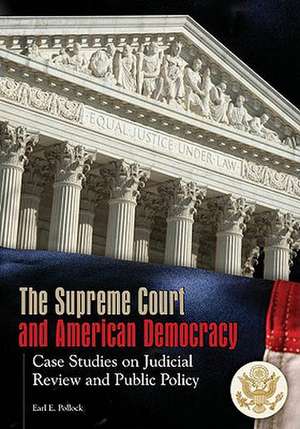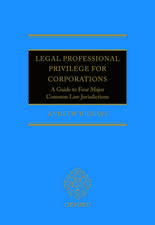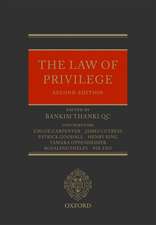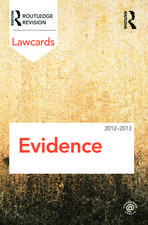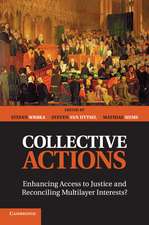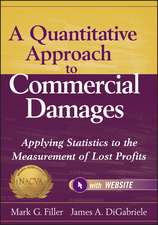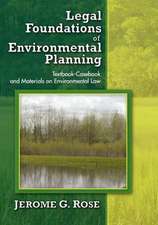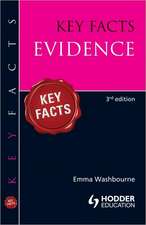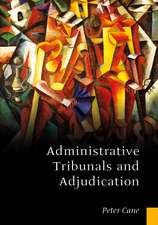The Supreme Court and American Democracy: Case Studies on Judicial Review and Public Policy
Autor Earl Pollocken Limba Engleză Hardback – 29 dec 2008 – vârsta până la 17 ani
Preț: 419.49 lei
Preț vechi: 726.98 lei
-42% Nou
Puncte Express: 629
Preț estimativ în valută:
80.27€ • 84.02$ • 66.81£
80.27€ • 84.02$ • 66.81£
Carte tipărită la comandă
Livrare economică 31 martie-14 aprilie
Preluare comenzi: 021 569.72.76
Specificații
ISBN-13: 9780313365256
ISBN-10: 0313365253
Pagini: 432
Dimensiuni: 178 x 254 x 28 mm
Greutate: 0.91 kg
Editura: Bloomsbury Publishing
Colecția Greenwood
Locul publicării:New York, United States
ISBN-10: 0313365253
Pagini: 432
Dimensiuni: 178 x 254 x 28 mm
Greutate: 0.91 kg
Editura: Bloomsbury Publishing
Colecția Greenwood
Locul publicării:New York, United States
Notă biografică
Earl E. Pollock served as a law clerk for chief justices Fred M. Vinson and Earl Warren and participated in drafting opinions during one of the most exciting eras in U.S. Supreme Court history. He became Assistant to the U.S. Solicitor General and later had a long and distinguished career as a partner in a private law firm. He is the author of numerous law review articles.
Cuprins
ACKNOWLEDGMENTSINDEX OF CASE DIGESTSINTRODUCTION1. THE CONSTITUTION AND THE SUPREME COURT2. FROM MARBURY TO RECONSTRUCTION3. RACE DISCRIMINATION BY GOVERNMENT4. RACE DISCRIMINATION BY PRIVATE PERSONS5. MINORITY PREFERENCES6. ABORTION AND THE RIGHT OF PRIVACY7. TERMINAL ILLNESS ISSUES8. GAY RIGHTS9. FREEDOM OF SPEECH10. FREEDOM OF THE PRESS11. THE ESTABLISHMENT OF RELIGION CLAUSE12. THE FREE EXERCISE CLAUSE13. EXECUTIVE POWERS14. VOTING AND ELECTIONS15. CRUEL AND UNUSUAL PUNISHMENT16. PROPERTY RIGHTS17. THE SECOND AMENDMENTAPPENDIX AUNITED STATES CONSTITUTIONAPPENDIX BSOME SUGGESTIONS FOR FURTHER READINGAPPENDIX CINDEX OF OPINIONS BY JUSTICE
Recenzii
Pollock, an attorney, considers the controversial role of the US Supreme Court in public policy issues and specific cases relating to abortion, gay rights, physician-assisted suicide, racial segregation, affirmative action, slavery, due process, elections and voting, freedom of expression, church and state, the powers of the president, capital punishment, gay rights,religion, and property rights. He summarizes the basic constitutional law principles, explains the Court's function and work, and recounts the background and aftermath of decisions in specific cases, with summaries of all filed opinions.
